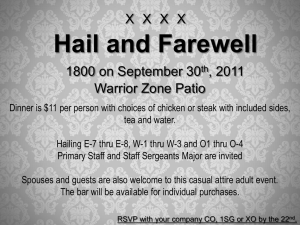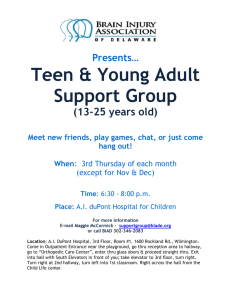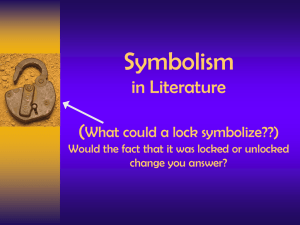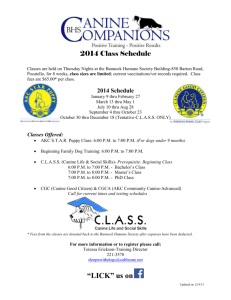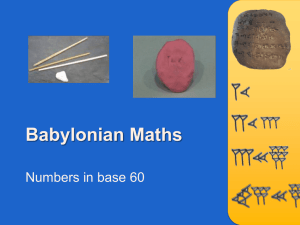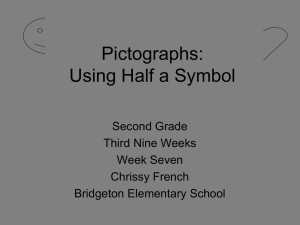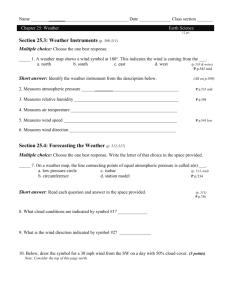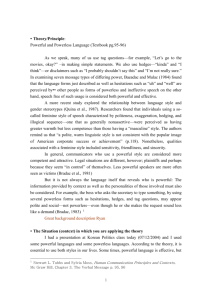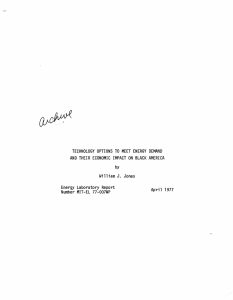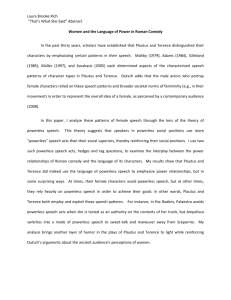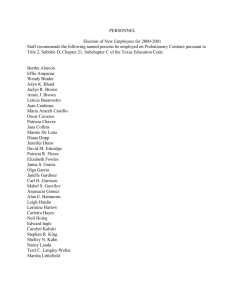Power notes to Durrenberger
advertisement
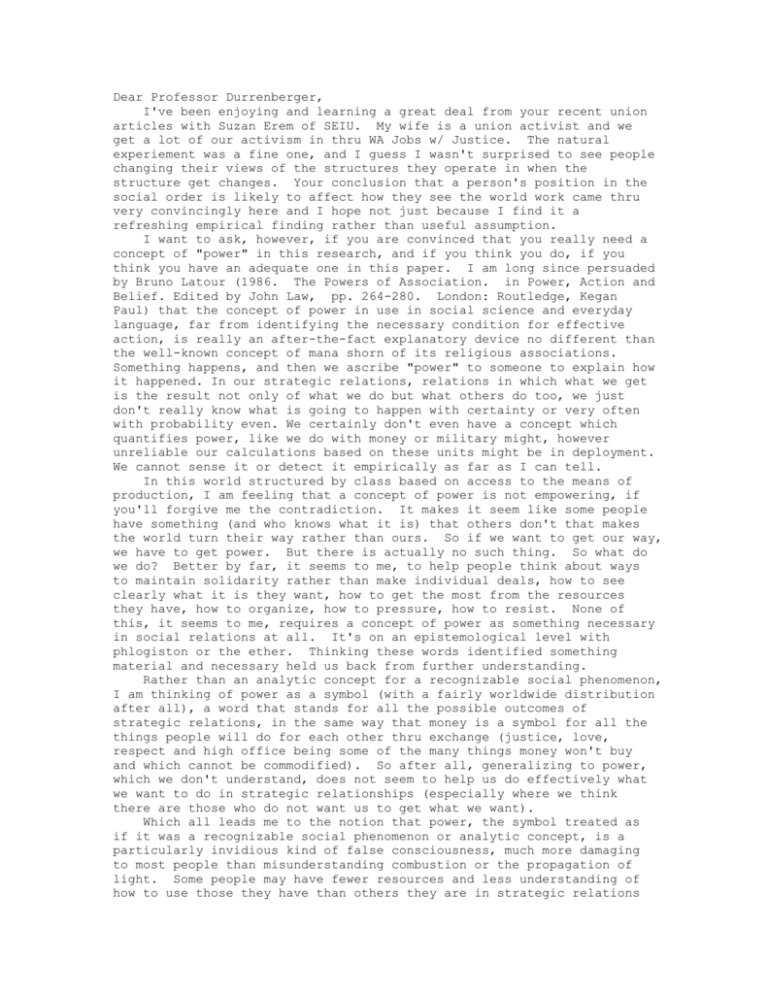
Dear Professor Durrenberger, I've been enjoying and learning a great deal from your recent union articles with Suzan Erem of SEIU. My wife is a union activist and we get a lot of our activism in thru WA Jobs w/ Justice. The natural experiement was a fine one, and I guess I wasn't surprised to see people changing their views of the structures they operate in when the structure get changes. Your conclusion that a person's position in the social order is likely to affect how they see the world work came thru very convincingly here and I hope not just because I find it a refreshing empirical finding rather than useful assumption. I want to ask, however, if you are convinced that you really need a concept of "power" in this research, and if you think you do, if you think you have an adequate one in this paper. I am long since persuaded by Bruno Latour (1986. The Powers of Association. in Power, Action and Belief. Edited by John Law, pp. 264-280. London: Routledge, Kegan Paul) that the concept of power in use in social science and everyday language, far from identifying the necessary condition for effective action, is really an after-the-fact explanatory device no different than the well-known concept of mana shorn of its religious associations. Something happens, and then we ascribe "power" to someone to explain how it happened. In our strategic relations, relations in which what we get is the result not only of what we do but what others do too, we just don't really know what is going to happen with certainty or very often with probability even. We certainly don't even have a concept which quantifies power, like we do with money or military might, however unreliable our calculations based on these units might be in deployment. We cannot sense it or detect it empirically as far as I can tell. In this world structured by class based on access to the means of production, I am feeling that a concept of power is not empowering, if you'll forgive me the contradiction. It makes it seem like some people have something (and who knows what it is) that others don't that makes the world turn their way rather than ours. So if we want to get our way, we have to get power. But there is actually no such thing. So what do we do? Better by far, it seems to me, to help people think about ways to maintain solidarity rather than make individual deals, how to see clearly what it is they want, how to get the most from the resources they have, how to organize, how to pressure, how to resist. None of this, it seems to me, requires a concept of power as something necessary in social relations at all. It's on an epistemological level with phlogiston or the ether. Thinking these words identified something material and necessary held us back from further understanding. Rather than an analytic concept for a recognizable social phenomenon, I am thinking of power as a symbol (with a fairly worldwide distribution after all), a word that stands for all the possible outcomes of strategic relations, in the same way that money is a symbol for all the things people will do for each other thru exchange (justice, love, respect and high office being some of the many things money won't buy and which cannot be commodified). So after all, generalizing to power, which we don't understand, does not seem to help us do effectively what we want to do in strategic relationships (especially where we think there are those who do not want us to get what we want). Which all leads me to the notion that power, the symbol treated as if it was a recognizable social phenomenon or analytic concept, is a particularly invidious kind of false consciousness, much more damaging to most people than misunderstanding combustion or the propagation of light. Some people may have fewer resources and less understanding of how to use those they have than others they are in strategic relations with, but thinking of these relations as between the powerful and the powerless will not, I think, encourage and assist those people characterized as powerless. I thought this kind of strong bifurcation was overdrawn in James Scott's hidden transcripts book too. And so he concluded that what surprised him was how often the powerless rose up in active resistance only to be suppressed again. Well, what is needed is accurate assessments of useful resources and how to get the most out of those resources in strategic relations. Anyway, your series of articles has given me a lot to think about field sites, methods, collaborations, findings - so I hope this has given you something interesting to think about in return.
